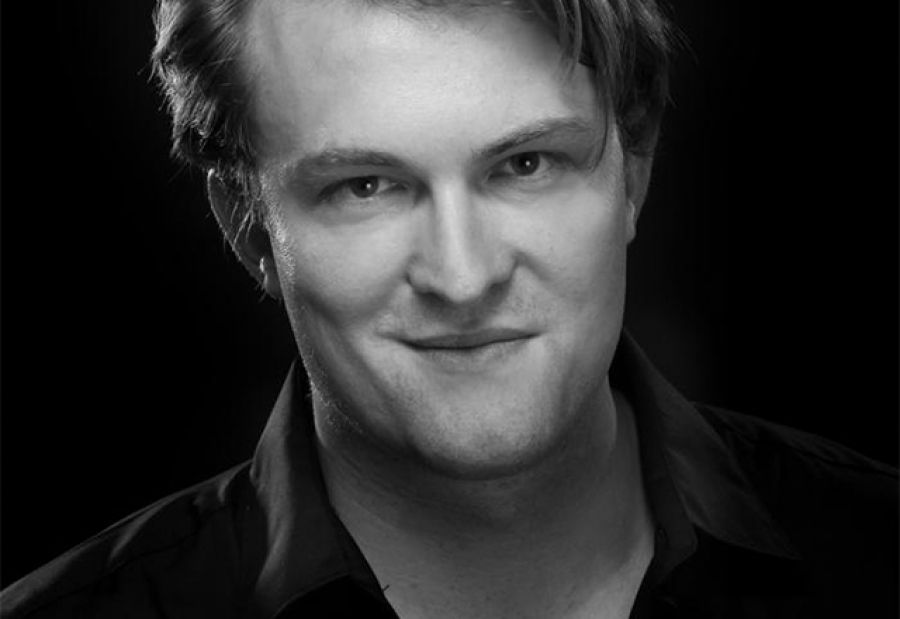
- Free Article: No
- Contents Category: Critic of the Month
- Custom Article Title: James McNamara is Critic of the Month
- Review Article: No
- Custom Highlight Text:
Clive James: the master. Erudite yet accessible; terrifyingly well-read; and pioneering, in treating television as a medium deserving of serious critical attention. Caitlin Moran: her feminist critique of gender politics is accessible and vital; her pop-culture criticism perfectly blends the eye-roll with toe-wriggling enjoyment. Giles Coren: he turned the restaurant review into a roaring, funny, joyous literary art. I have no interest in British restaurants, but if I can't read Giles on a Saturday, I'm annoyed. That's the sign of a great critic. Camilla Long: nobody wields a more deft scalpel on film. Christopher Hitchens: his voice is so strident, so vibrant. He'd be at Trump like a wolf to steak.
Which critics most impress you?
Clive James: the master. Erudite yet accessible; terrifyingly well-read; and pioneering, in treating television as a medium deserving of serious critical attention. Caitlin Moran: her feminist critique of gender politics is accessible and vital; her pop-culture criticism perfectly blends the eye-roll with toe-wriggling enjoyment. Giles Coren: he turned the restaurant review into a roaring, funny, joyous literary art. I have no interest in British restaurants, but if I can't read Giles on a Saturday, I'm annoyed. That's the sign of a great critic. Camilla Long: nobody wields a more deft scalpel on film. Christopher Hitchens: his voice is so strident, so vibrant. He'd be at Trump like a wolf to steak.
What makes a fine critic?
Fairness, close textual engagement, and excellent prose are basic requirements. I admire critics with a strong, individual voice who write engagingly in the first person. As a magazine or newspaper critic, you have limited space to make an argument. Given that, it's important to establish a relationship with readers to enable them to trust – or run a mile from – the critic's opinions. I also think there's a place for humour in reviewing. [Bravo! Ed.]
Do you accept most books on offer, or are you selective?
I pitch for most of my work, so I mainly write on books I've chosen.
Do reviewers receive enough feedback from editors and/or readers?
Peter Rose gives excellent feedback – I value that, it's rare. I also got an early and important 'constructive bollocking' from Stephen Romei at The Australian, which was vital. Otherwise, critics get very little volunteered feedback. Young writers need this to develop, so I sought it out from senior writers I admire. I've been luckier than I deserve to receive generous constructive criticism in response. I'd welcome more feedback from readers. Just don't fling fruit at me.
What do you think of negative reviews?
Tricky. I agree with Geordie Williamson's 2011 Pascall Prize remarks, where he endorsed 'open-handed criticism' and being an enthusiast. I hope to be the print version of the person who rushes up to you at a dinner party before you drop your coat, shoves a drink in one hand, a book in the other, and bellows: 'Lovely to see you, YOU MUST READ THIS.' Having said that, we are a bit too nice to each other in Australian letters. We're a small pond, but sometimes we drift towards being an extension of a publisher's marketing team.
When a negative review has to be written, I think critics should take a proportionate approach. If a prize-winning author has written a well-received turkey, by all means give it a drubbing. They can take it, their career will survive, and they don't deserve a platform just because they're a name. But I can't stand established critics kicking début novelists in the throat – it's counter-productive, career-damaging, and stops people writing. Similarly, young critics trying to make a reputation by being bastards is just dreary.
I also think a negative review should be scrupulously fair – critics must weigh the bad with the good, and judge a book on what it aims to be (i.e., not sneering at commercial fiction for being insufficiently literary). Above all, it's important to remember that a person wrote the book. They lived with it, their family lived with it. It's their soul on a page. Be careful how you stomp on it.
How do you feel about reviewing people you know?
It shouldn't be done, where possible. You risk giving the book a puff, which is wrong, or hurting a friend by telling them their book is crap. That's best done awkwardly, with faint praise, over the fourth drink.
What's a critic's primary responsibility?
Don't be boring, don't be cruel.
James McNamara holds degrees in English and Law from the University of Western Australia, a doctorate in English from Oxford, and graduated in screenwriting from AFTRS. He is the recipient of ABR's third Ian Potter Foundation Fellowship for his essay 'The Golden Age of Television?'. He works in television.


Comments powered by CComment